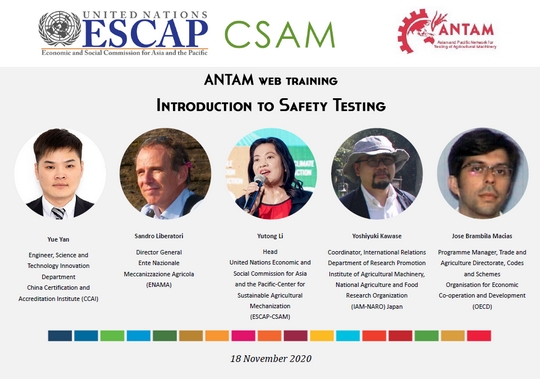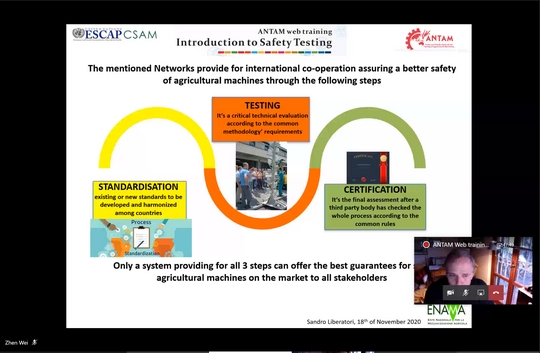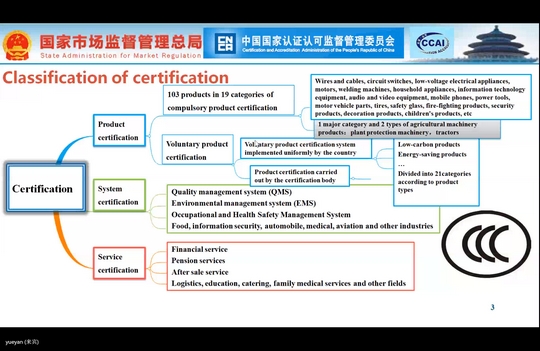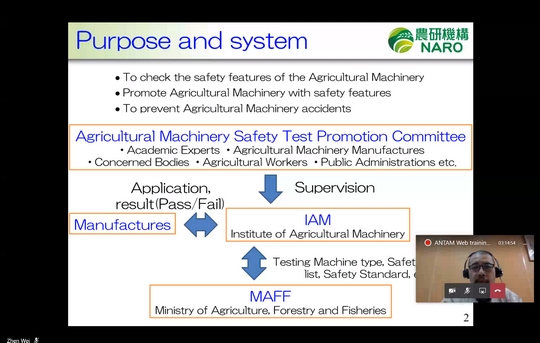Introduction to Safety Testing at ANTAM Web Training

Safety is a multidimensional pillar of sustainable agricultural mechanization because it is related to the protection of the environment, of the human workforce in agriculture, and to food security. Lack of safety in agricultural machinery can cause a high social, environmental and economic cost not only to farmer communities but to Governments at large, and for this reason the safety of machinery should be prioritized in agriculture strategies. While agricultural mechanization can play a key role in enabling recovery from shocks and building long-term resilience of farming communities, lack of safety requirements potentially leads to injuries of operators, environmental degradation and poor food security. For instance, while it is self-evident that a machine with rotating components without any protection may cause injuries to limbs, also a simple a sprayer with poor nozzles could cause at scale significant health and environmental damages, potentially leading to high residues of toxic chemicals on crops. It is thus crucial to have a strong understanding of the importance of safety requirements, as well as of the aspects that need to be tested to ensure these requirements are met.
The Asian and Pacific Network for Testing of Agricultural Machinery (ANTAM) is an initiative led by ESCAP-CSAM that aims to harmonize testing standards for agricultural machinery in the Asia-Pacific region. This has the ultimate goal of facilitating trade but most importantly promote the use of safe, efficient and environmentally sound agricultural machinery in support of the Sustainable Development Goals. Building on the experience of ANTAM participating countries and partners in the testing of agricultural machinery, CSAM organized a web training to highlight the importance of safety standards and certification policies in food systems at large, and present some specific national and regional policies and testing practices.
Dr. Yutong LI, head of CSAM opened the event, highlighting the importance to have a strong understanding of the necessity of safety requirements, as well as of the aspects that need to be tested to ensure these requirements are met.
During the first part of the web training, Dr. Sandro Liberatori, Director General of ENAMA, the Italian Agency for Agricultural Machinery which is also the secretariat of ENTAM (European Network for the Testing of Agricultural Machinery) and Technical Reference Unit of ANTAM, set the webinar’s focus providing definitions and examples of how safety is managed. Mr. Yan Yue, Engineer at the Science and Technology Innovation Department of the China Certification and Accreditation Institute (CCAI) under the Certification and Accreditation Administration of China (CNCA) explained the benefits of safety certifications and provided examples from Chinese policies.
Their interventions were followed by specific presentations on safety testing of agricultural machinery. Mr. Kawase Yoshiyuki, Coordinator, International Relations, Department of Research Promotion, Institute of Agricultural Machinery, National Agriculture and Food Research Organization of Japan (IAM-NARO), provided an overview of the safety testing in Japan. Mr. Jose Brambila Macias, Programme Manager, Trade and Agriculture Directorate, Codes and Schemes of the Organisation for Economic Co-operation and Development (OECD) explained safety from the OECD perspective touching upon the reasons for the importance of regional standards.
The web training was followed by over 100 registered participants from various countries in the region and beyond. The moderator Mr. Anshuman Varma, Programme Officer at ESCAP-CSAM, concluded reminding all attendees that the web training would be converted into an e-learning module and that it would be complemented with future trainings on this topic, following the requests of member States and network participants.
The web training recording is available at https://www.youtube.com/watch?v=54qPHCGB2iE&feature=youtu.be




